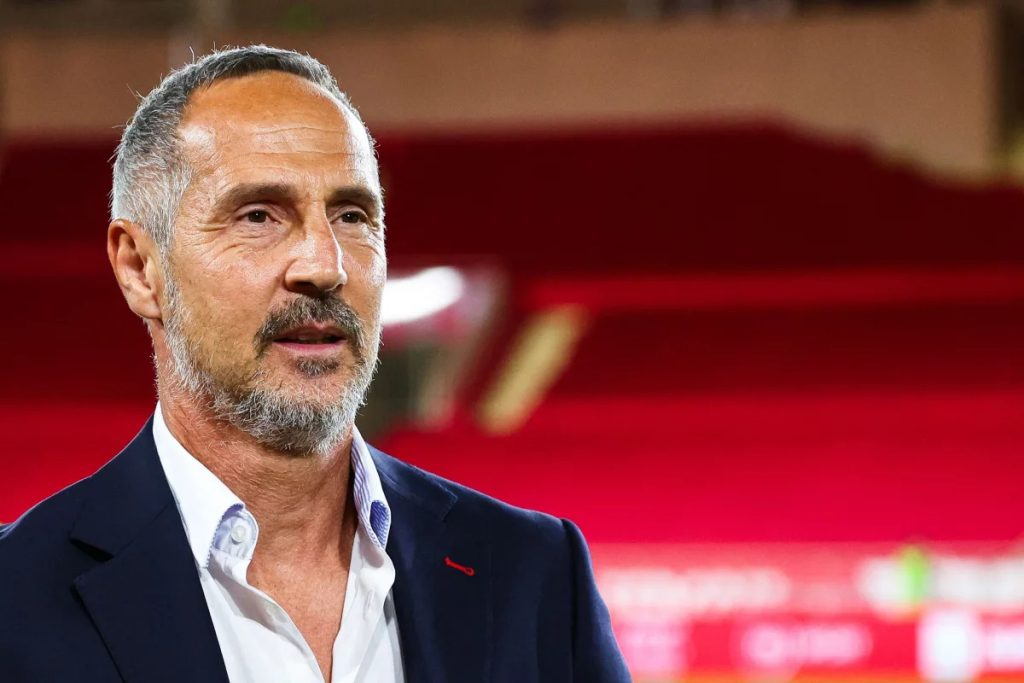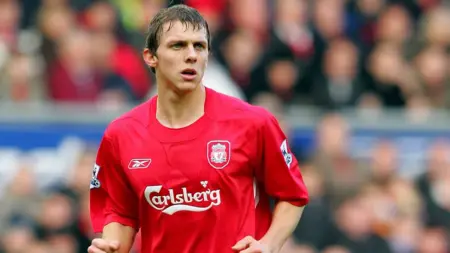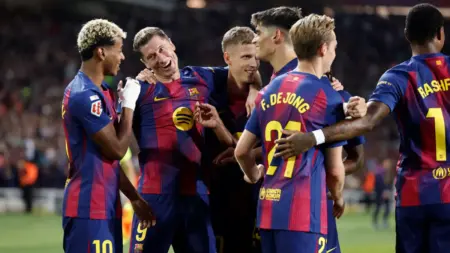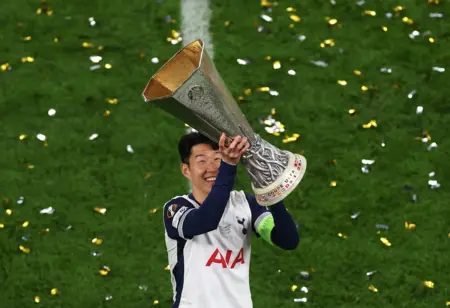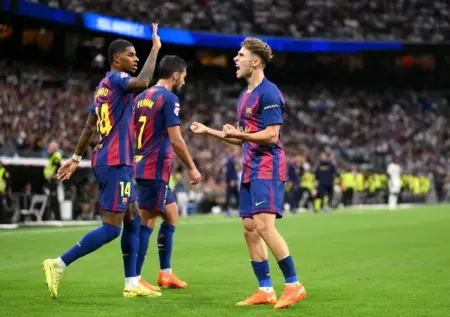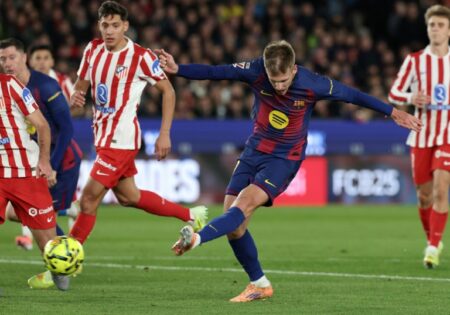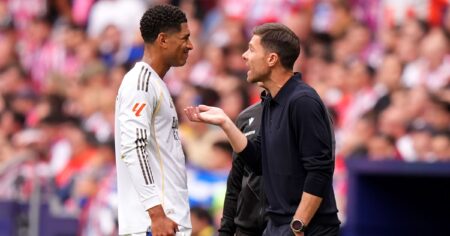Preparing for Benfica: Confidence and Caution
Ahead of AS Monaco’s crucial UEFA Champions League tie against Benfica, their manager, Adi Hütter, shared insights with Get French Football News. Hütter emphasized the importance of knowing the opposition, stating that Monaco’s familiarity with Benfica from their previous encounter provides a strategic advantage. "We know their strengths and weaknesses," he said, adding that the first leg is vital to secure an advantage before facing the passionate Estadio da Luz crowd. While Monaco’s early lead in their last match was impressive, Hütter pointed out a defensive lapse in the final 10 minutes, particularly with Angel Di Maria’s crosses, which led to a poor finish. He expressed confidence in Monaco’s style of play but acknowledged that every detail can be decisive in such a high-stakes game. With Di Maria’s fitness in question, Hütter stressed the need for a solid defensive performance, especially against a team known for its dynamic transitions and strong 4-3-3 formation.
An Underdog with Ambition
Hütter acknowledged that Monaco is faced with the challenge of being an underdog in this Champions League tie, yet he maintained a sense of pride in the club’s rich history and current ambitions. He recalled Monaco’s semi-final run a few years ago with a young team featuring Kylian Mbappé and Radamel Falcao, highlighting the club’s tradition of blending youth and experience. "We are an underdog but on a high level," he said, emphasizing Monaco’s ability to compete and even win against Benfica. Hütter noted that French teams like Brest, Lille, and PSG have made significant strides in European competitions, with Lille’s 2021 Ligue 1 title being a testament to the league’s strength. He believes that the presence of all four French clubs in the knockout stages is a positive sign for French football and underscores Monaco’s determination to rise to the occasion.
Evaluating Monaco’s Champions League Performance
Reflecting on Monaco’s Champions League performances, Hütter acknowledged the tough competition they faced, particularly against Arsenal, Inter Milan, and Barcelona. "At Arsenal, it wasn’t easy. You saw that Manchester City lost 5-1 there," he noted, highlighting the significant challenges Monaco overcame. Despite initial struggles, Monaco steadied the ship in the second half of their match against Arsenal and secured a notable victory against Aston Villa, underlining their resilience and adaptability. Hütter expressed satisfaction with the 13 points Monaco accumulated in the group stage, recognizing it as a commendable achievement. However, he also admitted that there are areas for improvement, especially in managing the gap between Monaco and the top European clubs. "We must take the next step," he emphasized, indicating the club’s ongoing process of developing young talent and finding the right balance with experienced players.
Bridging the Gap: Strategy and Development
Hütter discussed Monaco’s strategy for bridging the gap to top-tier European clubs like Barcelona and PSG. He mentioned that Monaco, being the fourth youngest team in Europe, is focused on nurturing young talent from their academy. This strategy, however, sometimes results in a lack of experience in crucial moments, which can be felt on the field. "We started one-and-a-half years ago, and we have brought in many young, talented, gifted players," he said, citing the arrival of George Ilenikhena, Christian Mawissa, Jordan Teze, and Lamine Camara. Hütter acknowledged that while these young players show great promise, they need more time and games to reach their full potential. He also noted the significant financial investments other clubs make, such as PSG’s €70 million signing of Khvicha Kvaratskhelia, which makes direct comparisons challenging. However, he remains optimistic about Monaco’s future, believing that with the right development and strategic adjustments, the club can elevate its status in European football.
Denis Zakaria: A Leader in the Making
One of the key experienced players Hütter highlighted is Denis Zakaria, a player he has known for over 10 years and has worked with at three different clubs. "You can see that he struggled at Juventus and Chelsea," Hütter said, pointing out that injuries have often interrupted Zakaria’s rhythm. Despite these setbacks, Zakaria remains a respected and influential figure on the pitch, known for his calm leadership and performance focus. "He is a calm leader, not the one who talks too much, but his presence gives stability to the team," Hütter explained. He added that Zakaria’s attitude has evolved over time, from a talented but sometimes tardy 18-year-old to a more disciplined and consistent player. Hütter praised Zakaria’s respect and humility, which have earned him admiration both at the club and in the community. His presence is crucial, and the manager is keen to maintain his fitness and form for the upcoming challenges.
Nurturing the Next Generation
Hütter also delved into the development of Monaco’s young talents, such as Eliesse Ben Seghir and Maghnes Akliouche. Ben Seghir, while showing promise early in the season, is currently experiencing a dip in form. "For me, the process is normal," Hütter said, explaining that fluctuations in performance are part of a young player’s growth. He believes that Ben Seghir’s recent struggles are a necessary phase in his development, allowing him to mature and gain more understanding of the game. On the other hand, Akliouche has been consistent this season, demonstrating skills that set him apart. "I cannot see another player that has the same skills as Maghnes Akliouche," Hütter noted, praising his bravery, creativity, and ability to create chances. While he doesn’t rule out the possibility of Akliouche receiving a France call-up, Hütter emphasized the need to carefully manage young players, giving them space to develop without overwhelming pressure.
Managing the Dual Objective
Balancing the dual objective of achieving results and developing young talent is a challenge Hütter is well-prepared for. "When you sign a contract here at Monaco, you know what you have ahead of you," he said, highlighting the club’s clear vision and demanding expectations. Hütter’s philosophy is rooted in an attacking, creative style of football that he believes spectators appreciate. "I hated boring football: 15 passes around the back line, back to the goalkeeper," he explained, favoring a forward-thinking approach that aims to create chances and entertain. However, he also stressed the importance of structure and teamwork, ensuring that creative players like Akliouche, Ben Seghir, and Aleksandr Golovin use their talents collectively. The arrival of Mika Biereth has further enhanced this style, with his attacking runs and finishing skills complementing the team’s forward play. Hütter’s management style is characterized by open communication and a focus on player development, making him well-suited to Monaco’s long-term goals and immediate challenges.

